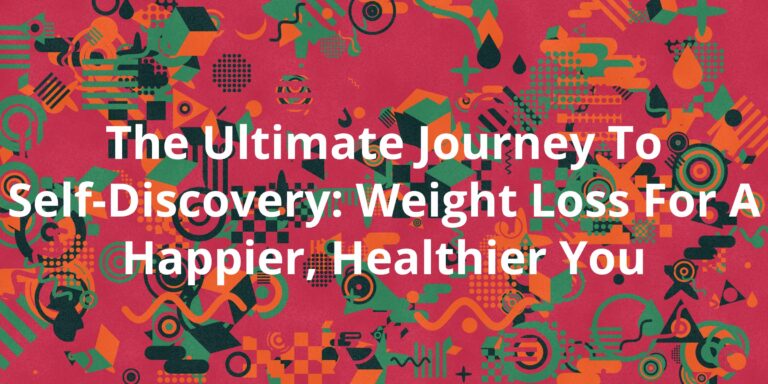Transform Your Life: A Powerful Guide to Weight Loss and Self-Discovery
Introduction
Weight loss has been a topic of interest for many individuals throughout their lives. The desire to shed excess pounds often stems from a combination of health concerns, societal pressures, and personal insecurities. However, the journey to a healthier body and mind is not just about reaching a specific number on the scale; it’s about discovering your true self and unlocking your full potential.
In this guide, we will explore the connection between weight loss and self-discovery, as well as practical tips and strategies for achieving both goals. We will delve into the importance of mindset, nutrition, exercise, and personal growth, and provide actionable steps to help you transform your life in a positive way.
The Mindset Shift
Before we can make lasting changes to our bodies, we must first shift our mindset. Weight loss is not just about following a strict diet or exercise regimen; it’s about adopting a new way of thinking that prioritizes self-care and personal growth.
One of the most important aspects of this mindset shift is self-awareness. By becoming aware of our thoughts, emotions, and behaviors, we can identify patterns that may be holding us back from achieving our goals. This includes being honest with ourselves about why we turn to food for comfort or stress relief, as well as recognizing the negative self-talk that may be sabotaging our efforts.
Another key component of this mindset shift is setting realistic and achievable goals. Rather than focusing on a specific number on the scale or a certain body type, we should focus on making small, incremental changes that will lead to long-term success. This includes setting achievable exercise and dietary goals, as well as incorporating self-care practices such as meditation or journaling into our daily routine.
Nutrition
While exercise is important for weight loss and overall health, nutrition plays a crucial role in achieving our goals. A balanced and nutritious diet can provide the energy and nutrients needed to support our physical and mental well-being.
One of the most important aspects of healthy eating is portion control. By learning how much food we need to consume each day, we can avoid overeating and maintain a healthy weight. This includes paying attention to hunger cues, as well as practicing mindful eating habits such as slowing down and savoring our meals.
Another key component of healthy eating is incorporating a variety of nutrient-dense foods into our diet. This includes fruits, vegetables, whole grains, lean proteins, and healthy fats. By consuming a diverse range of nutrients, we can ensure that our bodies are getting the necessary vitamins, minerals, and other nutrients needed for optimal health.
Exercise
While nutrition plays a crucial role in weight loss and overall health, exercise is also an essential component of any healthy lifestyle. Regular physical activity can help us maintain a healthy weight, as well as improve our cardiovascular health, increase muscle mass, and boost our mood.
When it comes to exercise, there are no one-size-fits-all solutions. The most effective type of exercise for each individual will depend on their fitness level, goals, and personal preferences. This includes activities such as running, swimming, cycling, weightlifting, and yoga.
In addition to choosing the right type of exercise, it’s also important to incorporate regular physical activity into our daily routine. This means finding ways to make exercise fun and enjoyable, such as exercising with friends or joining a group class. By making exercise a priority in our lives, we can reap the numerous benefits that come with regular physical activity.
Personal Growth
As we work towards achieving our weight loss goals, it’s important to also focus on personal growth and self-discovery. Weight loss is not just about looking good; it’s



